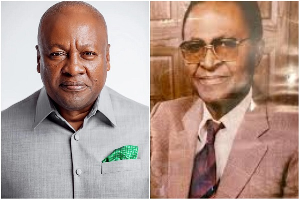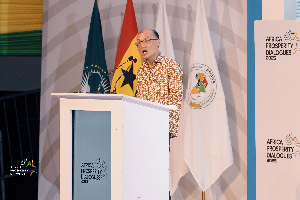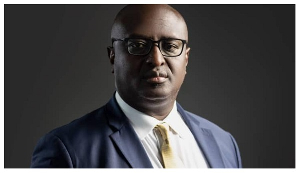All government officials who travel on assignment outside the country will soon be required to use a credit and debit card in their transactions in a bid to ensure accountability and transparency, Vice President Dr Mahamudu Bawumia has revealed.
“We have decided that in the area of travel, government workers travel a lot and tend to carry cash; we have to move all government travels to credit and debit cards so that if you move to anywhere you can make all your payments on your credit or debit card, and the accountability and transparency, therefore, will be assured.
“When you come and retire your impress, you can show all the payments you made and it will be demonstrated by that; it will save government a lot of money, and for domestic travels, the gh-card will be very good,” he said.
Speaking at the GH Dual Card’s launching under the auspices of the Ghana Interbank Payment and Settlement Systems Limited (GhIPSS) in Accra on Wednesday, Dr. Bawumia indicated that it is a deliberate policy of government to use technology for driving the economy.
The GH Dual Card is a two-in-one payment card that has both the e-zwich and gh-link applications. It can, therefore, be used either as e-zwich, gh-link or both as desired. Depending on the request of a customer, an issuing bank can activate any of the functionalities that serve a customer’s purpose.
See Also: Ministry of Education, COTVET launch national skills competition
“You don’t have to do two single cards – one e-zwich, another for gh-link – you can do the two in one. This is a world-first – it has not happened in any part of the world; it is the first time that any country is issuing this combined card. This is a financial inclusion card because it will further promote financial inclusion in the payment system space,” the Vice President said.
According to him, the biometric feature of the e-zwich makes it ideal for public sector payments as it is able to eliminate ghost workers.
“We are going to require that all government workers will be paid through the filter of the e-zwich card; all public workers which do not have the card will be issued with it – and this will make sure 100 percent that for the whole public sector payroll, we can say there are no ghost workers in the system,” he said.
He also maintained that the newly-launched dual card is part of a payment system architecture that government is putting in place that will reduce the cost of providing cards, because it has been designed to give cardholders access to both funds on their e-zwich cards and in their bank accounts at the same time.
“It will provide financial institutions with an opportunity to cut down on the cost of issuing two separate cards to the same customer, as they now have the option of issuing a dual card that incorporates the functionalities of both gh-link and e-zwich cards,” he added.
See Also: Trips system by GCNet process GH¢15.7bn domestic tax in 2017
Furthermore, he challenged GhIPSS, telcos, financial institutions and fintechs to work closely with various government agencies which collect levies and fees to ensure it becomes possible for people to pay all levies and fees electronically.
The CEO of GhIPSS, Archie Hesse, stated that the Gh Dual card is expected to significantly bring down the cost of card production for financial institutions – and by extension the cost of transactions for customers, adding that the dual card will not replace existing e-zwich cards only, neither will it replace gh-link cards only.
“This initiative will complement and provide options for both financial institutions and their customers. Instead of keeping two separate cards, customers can now have one card.”
Mr. Hesse also revealed that GhIPSS is on the verge of introducing a hybrid point of sale device that will accept both e-zwich and gh-link cards. Other products being lined up include proxy pay, request to pay and a universal QR code system before year-end.
Governor of the Bank of Ghana, Dr. Ernest Addison, in a speech read on his behalf welcomed the move and indicated that it will be convenient and motivate the public to use cards in making payments.

















